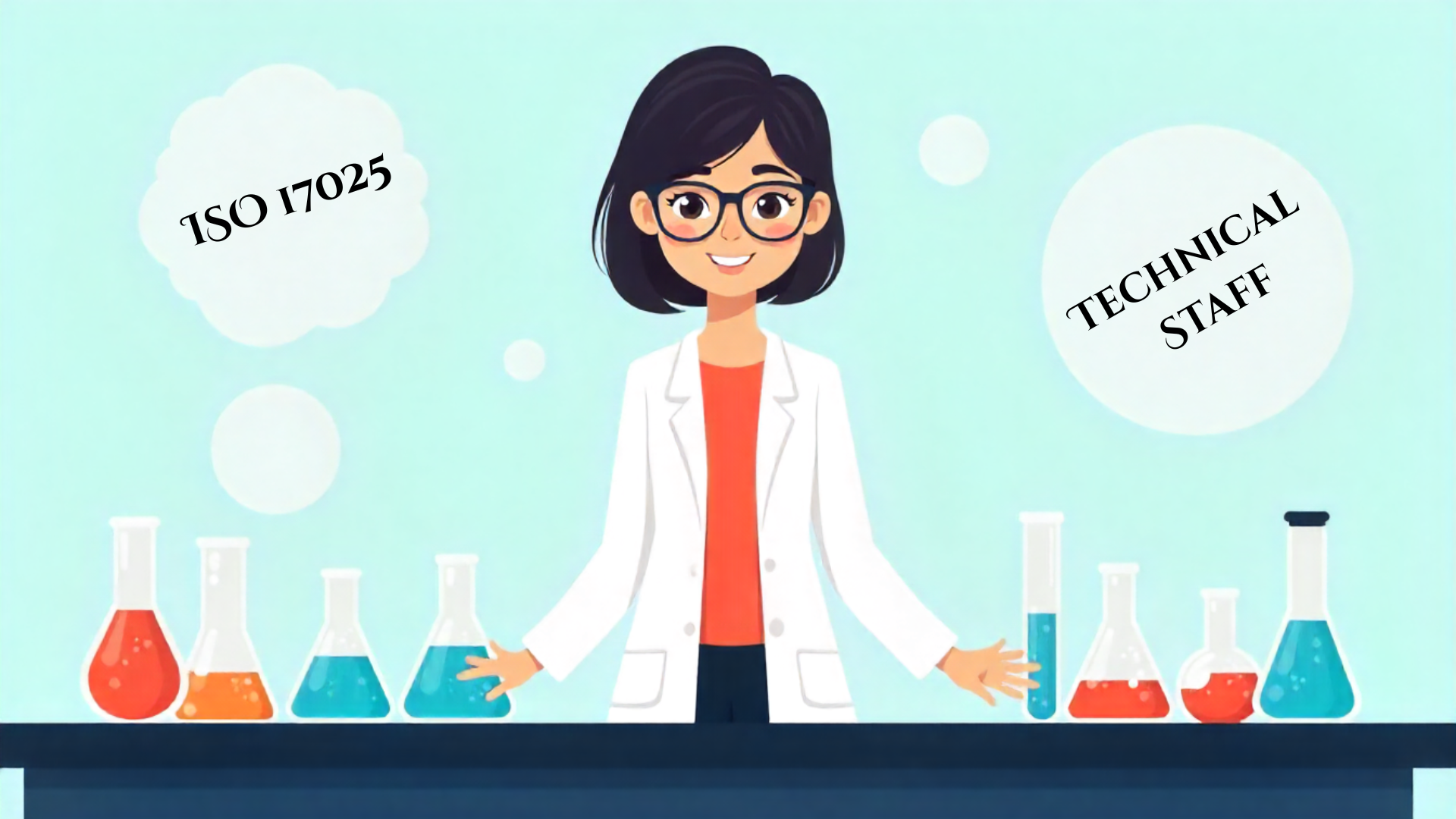You’re a lab tech, right? You spend your days surrounded by pipettes, calibration equipment, and data sheets, making sure every test result is as precise as a Swiss watch. But let’s be real—when someone mentions “ISO 17025,” does your brain start picturing a maze of standards and audits? Don’t worry, you’re not alone. Formación de auditor interno ISO 17025 might sound like just another hoop to jump through, but it’s actually a game-changer for you and your lab. Think of it as the key to keeping your lab running smoothly while dodging costly mistakes. Let’s break it down and see why this training is worth your time.
What’s ISO 17025, and Why Should You Care?
First things first: ISO 17025 is the gold standard for testing and calibration labs. It’s like the blueprint that ensures your lab’s results are reliable, repeatable, and recognized worldwide. Whether you’re testing water quality, calibrating medical equipment, or analyzing soil samples, this standard is your lab’s backbone. But here’s the catch—meeting those requirements isn’t just about having fancy equipment or following procedures. It’s about proving you’ve got the systems in place to deliver consistent, high-quality results. That’s where formación de auditor interno ISO 17025 comes in.
An internal auditor is like the lab’s quality detective. They poke around, ask questions, and make sure everything’s up to snuff. Without proper training, though, auditing can feel like trying to solve a puzzle with half the pieces missing. Formación de auditor interno ISO 17025 equips you with the skills to spot gaps, fix issues, and keep your lab compliant. Plus, it’s a feather in your cap—being an auditor makes you the go-to person for quality control. Who doesn’t want that kind of credibility?
The Nuts and Bolts of Formación de Auditor Interno ISO 17025
So, what does this training actually involve? Picture this: a mix of classroom learning (or virtual sessions, because, you know, modern times), hands-on exercises, and real-world scenarios. You’ll learn the ins and outs of ISO 17025, from understanding its structure to conducting audits that don’t just check boxes but actually improve your lab’s processes. Here’s a quick rundown of what you’ll cover:
- The Standard, Decoded: You’ll get familiar with ISO 17025’s requirements, like management systems, technical competence, and impartiality. It’s not just jargon—it’s about making sure your lab’s work stands up to scrutiny.
- Audit Planning: Learn how to map out an audit like a pro, from setting objectives to scheduling reviews without disrupting the lab’s workflow.
- Finding Nonconformities: This is where you channel your inner Sherlock. You’ll practice spotting issues—like inconsistent calibration records or unclear test procedures—and figure out how to fix them.
- Reporting Like a Boss: Writing audit reports that are clear, concise, and actually useful? That’s a skill you’ll master.
- Follow-Up Actions: Audits aren’t just about pointing out problems. You’ll learn how to track corrective actions and make sure they stick.
Sounds like a lot, right? But the best courses break it down into bite-sized chunks, often over a few days, so you’re not drowning in information. Some even offer role-playing exercises where you simulate audits—kind of like a lab version of a murder mystery game, but with less drama and more checklists.
Why This Training Feels Like a Superpower
Here’s the thing: being an internal auditor isn’t just about following guidelines. It’s about seeing the bigger picture. You’re not just checking if someone forgot to log a calibration—you’re helping your lab avoid costly retests, maintain accreditations, and build trust with clients. Imagine being the person who catches a tiny error that could’ve thrown off a major project. That’s the kind of impact you’ll have with formación de auditor interno ISO 17025.
Plus, let’s talk career perks. Formación de auditor interno ISO 17025 isn’t just a certificate to hang on your wall (though it looks pretty good there). It’s a skillset that makes you indispensable. Labs are always looking for people who can bridge the gap between technical work and quality management. And with industries like biotech and environmental testing booming, that expertise is in high demand. You might even find yourself consulting for other labs or climbing the ladder to a quality manager role. Not too shabby, right?
But Isn’t Auditing Kind of… Boring?
I hear you. The word “audit” doesn’t exactly scream excitement. It might conjure up images of clipboards, stern faces, and endless paperwork. But here’s where I let you in on a little secret: auditing can be surprisingly satisfying. Think about it—when you find a process that’s slowing down your team or a gap that’s risking your lab’s accreditation, you’re not just pointing out problems. You’re solving them. It’s like untangling a knot or fixing a leaky faucet. There’s a quiet thrill in making things better.
And let’s not forget the human side. As an auditor, you’ll work with your colleagues, not against them. You’re not the bad guy swooping in to catch mistakes—you’re the teammate helping everyone do their best work. Formación de auditor interno ISO 17025 teaches you how to communicate findings without stepping on toes, which is a skill you’ll use far beyond the lab.
Overcoming the Learning Curve
Now, I won’t sugarcoat it—ISO 17025 training can feel overwhelming at first. The standard is dense, and auditing requires a shift in mindset. You’re not just doing the tests anymore; you’re evaluating the systems behind them. But here’s the good news: the training is designed to ease you into it. You don’t need to be a quality guru to start. Most courses assume you’re a lab tech with technical know-how, not a standards expert.
If you’re worried about the time commitment, think of it like learning to drive. At first, you’re hyper-focused on every move—check the mirrors, signal, brake. But soon, it becomes second nature. Auditing is the same way. After a few practice runs, you’ll be spotting nonconformities like it’s no big deal.
Your Next Steps: Making It Happen
So, you’re sold on the idea of becoming an ISO 17025 internal auditor. What’s next? Start by talking to your lab manager—many labs will cover training costs because it’s a win for them too. Then, do a quick search for courses. Providers like ASQ, BSI, or even local training firms often have schedules posted online. If you’re feeling adventurous, check out platforms like Coursera or Udemy for introductory courses to get a taste before committing to a full program.
And here’s a pro tip: network with other auditors. Join forums on sites like LinkedIn or LabWrench, where lab pros swap stories and tips. You’d be surprised how many auditors are happy to share their experiences over a virtual coffee.
Wrapping It Up: Your Lab Needs You
Formación de auditor interno ISO 17025 isn’t just another task on your to-do list. It’s a chance to level up your skills, protect your lab’s reputation, and maybe even have a little fun along the way. Sure, it takes effort, but the payoff—knowing you’re keeping your lab’s quality on point—is worth it. So, what do you say? Ready to step up and become your lab’s quality superhero? Your pipettes and calibration records are counting on you.




